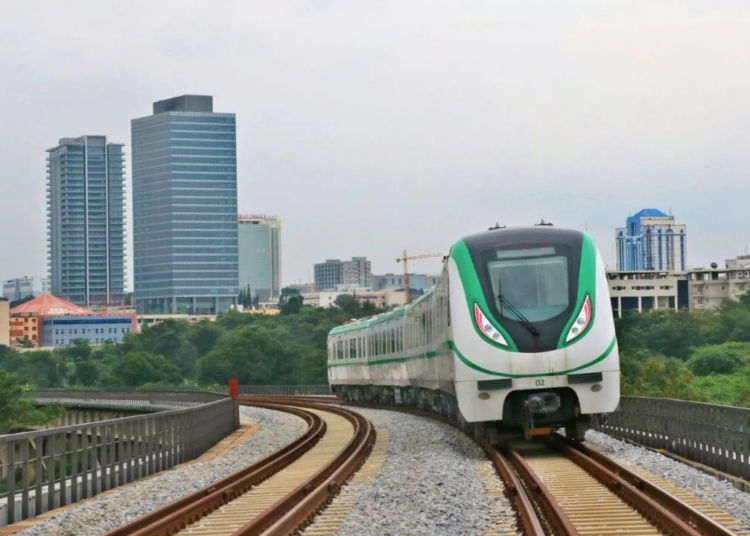The multi-billion-naira Abuja Rail Mass Transit project appears to have been abandoned. It’s sad that such a legacy project is gradually rotting away after being commissioned by President Muhammadu Buhari in 2018.
The Abuja Light Rail project was originally designed to find concrete solution to transportation challenges – heavy traffic and hold-up – in the Federal Capital Territory (FCT) and its environs.
Many of the people living in the satellite towns and work within the Abuja Metropolis require transportation to and from work. Most people rely on private vehicles and minibuses for transportation into the city and a ban on the use of commercial motorcycles has increased the dependency on informal methods of transportation.
The layout of the city was specially designed to accommodate rail mass transit. The transit ways are parallel lines running through about 19 communities. Private vehicles were not planned for these routes.
At the centre of Abuja city lies the central business district which is the main government district. The objective of the Abuja rail mass transit project is to create a rail mass transit system that meets the highest international standards of technical excellence, harnesses the efficient operation and management of the private sector and has broad social and political acceptance.
The project was first conceived in 1997 during the regime of Gen Sani Abacha but was delayed due to funding issues. CCECC Nigeria was later awarded the contract for the construction of the first two phases, known as Lots 1 and 3, in May 2007.
Abuja Light Rail To Resume Operations Before May 29 – Minister
According to the design, the project is to cover a total distance of 290 km (180 mi) to be developed in six phases or lots. The contract was awarded at the cost of US$824million with 60 per cent to be funded with loans from the Exim Bank of China.
The loan agreement was signed on November 7, 2012 by Nigeria and the China EXIM Bank. It’s a $500 million concessionary loan at 2.50 per cent, which has a grace period of seven years, with a maturity date of September 21, 2032 and a tenure of 20 years. The loan has since been fully accessed.
The 42.5 km (26.4 mi) Lot 1, which has been completed, has two lines and 12 stations connecting the Abuja City Centre with the Nnamdi Azikiwe International Airport via the Lagos–Kano standard gauge railway at Idu. It has stations at Abuja metro, stadium, Kukwaba I, Kukwaba II, Wupa, Idu, Bassanjiwa and the airport.
Lot 2 connects from Gwagwa through the metro station to Nyanya/Karu. The Blue Line (Lot 3) is expected to pass through Idu to Kubwa, with stations in Idu, Gwagwa, Deidei, Kagini and Gbazango. Lot 4 is from Kuje to Karshi with the remaining legs of the transit-way line 2. Lot 5 is expected to be from Kubwa via Bwari to Suleja and Lot 6 from the airport via Kuje and Gwagwalada to Dobi.
Upon opening in 2018, only the section between Abuja Metro Station and the Airport was operational, with an intermediate station at Idu. The remaining nine stations were originally scheduled to begin operations in 2020 before COVID-19 struck.
Whatever the challenges delaying the completion of the project, we call on the Federal Capital Territory Administration (FCTA) and indeed the federal government to declare an emergency to rescue the Abuja Light Rail project from waste.
In our view as a newspaper, the project can’t, and shouldn’t be abandoned at this point when the repayment of the loan indeed commenced in March 2020. It’s a huge investment that should not be allowed to waste.
The National Assembly, as part of its oversight function over the FCT Administration, should probe the project. How come the loan has fully been accessed and repayment on it has commenced, but the project is yet to be completed? If officials of government are found wanting and shown to have diverted funds meant for the projects, they’re to be sanctioned and punished.
We consider it unacceptable and morally wrong for government to use taxpayers’ money to repay loan on a project they are not enjoying or may not enjoy in the near future. People must be held accountable for project.





